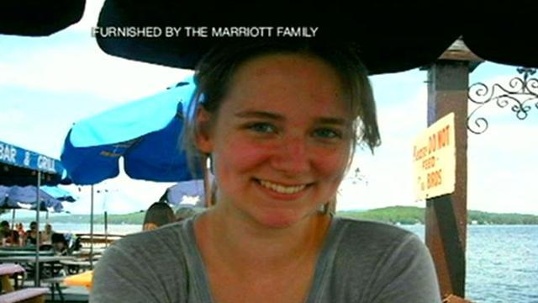By Bob Charest
InDepthNH.org
Do the dead have a right to privacy?
It seems like a simple question, but recent events are proving it is anything but simple.

Bob Charest, Why Should You Care NH
The New Hampshire Supreme Court is about to take up that issue on Sept. 21 and what they decide could have consequences around the country.
One of the things young journalists learn is that you cannot libel or slander the dead. It is a basis rooted in law going back centuries to England. The dead do not have reputations to uphold and livings to pursue, so there are no damages, unless the person’s heirs can prove that the estate suffers and therefore has been damaged.
But what about the associated damages to the families left behind? What about children who because of the eternal nature of the internet will most probably be faced with the footage of their father’s agonizing death or the torments of their callous classmates who learn of his death? What about the parents who have to endure the machinations of a legal system that would allow talk of their daughter’s sexual past to be exploited in an appeal case of the man who murdered her? Or the woman who jumps to her death after seeking help and cannot find the peace she so desperately wanted, in life or in death?
And more importantly: Why should you care? As technology gets better, as new apps allow people to live-stream anything, as more and more drones take to the skies, as police pin cameras on to their uniforms, as people take to blogs and comment boards and social media and their own websites, which may or may not profess to be fair and balanced (which is highly suspect), you have to care. This is the new frontier.
As William Shatner said about space at the beginning of every “Star Trek” episode, in this frontier, we are exploring strange new worlds, boldly going where no man has gone before.
How we get there matters to our democracy. We, the society that strives to be transparent, to be the people who shed light on injustice, have to decide the limits of that spotlight, because, frankly, innocent people can get hurt. People like you and me.
Now it might seem contradictory for a journalist to be arguing for privacy rights because, honestly, haven’t I spent at least part of my career trying to get to the sordid little details that make the story? How many times have I heard: “You should be ashamed of yourself?” And then I see the numbers on the “hits” the story gets, and they are off the charts. Are we a hypocritical society or what?
That, by the way, is something we at InDepthNH.org are trying hard to resist: Counting up the hits, throwing you “click-bait” that will attract more users to the site. That is not what we are about. But I won’t make this into a veiled commercial for the site.
Instead, I want to ask you to think about this: Why is it that everyone wants to know more about something unspeakable that has happened until it happens to them? Then they want to never hear about it again, at least not hear about it over and over again. It’s human nature to not want to live over and over again some terrible trauma, but the rest of us need to know what happened so, 1. It doesn’t happen to us; 2. We can prevent it from happening to someone else, maybe; and 3. We know how to deal with the perpetrator, if there is one.
The central question to this issue is this: Do the dead have any rights? And the answer to that is yes, in some cases, they do. That’s why we leave wills, directives, living wills and trusts and so forth. The courts have upheld the wishes of the dead, even when it conflicts with the rights of the living. For instance, donating one’s body to a university, organ donation, and strange bequests (including having one’s property destroyed) have all been upheld by courts. This area of the law is expanding all the time, with technology driving some of the cases, including the issue of the dead retaining posthumous autonomy, one issue being reproductive autonomy: We have the capability to do in vitro fertilization. What rights do the dead have in deciding if their genetic material lives on in a new generation?
In fact, laws that protect the dead are more or less enforced in an attempt to control the behaviors of the living. One area of the law, Interest Theory, is concerned in deciding that certain interests can survive death, such as the interest in making sure your children survive or that your reputation is protected. Another school of thought is that rights exist only among those capable of making choices. Thus, we leave out animals, trees and the mentally incapacitated, the latter having life choices decided for them, either by a court or court-appointed representative.
But what drives us as a society is our belief in personal dignity and respect for someone’s wishes. The courts have indicated time and time again that death does not end all legal rights. More importantly, we as a people have demonstrated our belief that death does not end all rights.
So I have to ask: What is the harm in letting the courts decide these issues as they come up? After all, this is what has been happening up to now. What’s wrong with that?
We cannot go on just letting the courts decide whether something should be made public or not. We have a representative form of government for the very purpose of deciding our rule of law. To continue allowing courts to decide the parameters of our democracy (and this they will do as whatever they decide becomes case law) is not the way our government was intended to work.
For a city attorney to decide that someone’s name should be redacted from a police log because she jumped to her death after being released from the state hospital, as happened in Nashua a few weeks ago, is not a decision for the city attorney to make. Is there even a law, case law or otherwise, regarding the withholding of a suicide victim’s identity?
For a judge to allow heavily-edited footage of a man’s shooting by police because the family fights against its release, as happened in a Bath case last year, is another instance of the courts deciding for us. The footage released was edited to exclude the especially gory parts, and the actual shooting was captured by a cruiser camera parked quite a ways away. Should a judge decide this is all that will be released to the public, or should we?
The case to be discussed by the state Supreme Court Sept. 21 involves the Lizzi Marriott murder in 2012 by Seth Mazzaglia and his attempts to win an appeal of his murder conviction by introducing evidence that Marriott had a sexual history that somehow would have helped his case at trial if that evidence wasn’t protected by New Hampshire’s Rape Shield law.
His attorneys are arguing that this information should be made public in the appeals process. Her parents, justifiably outraged, have filed their opposition. The New Hampshire Coalition Against Domestic and Sexual Violence, along with several other groups, is also arguing that those records should remain sealed throughout the appeal process. Allowing a victim the right to privacy has been a Godsend to people who have their identities shielded, and undoing that in the appeal process, regardless of whether the victim is dead or alive, will have a chilling effect on further cases.
Who benefits when the court rules? You might say the families and future victims, but realistically, the ones who benefit the most are the bureaucrats, those making the rules, running the institutions, prosecuting and investigating the criminal cases, who get to carry on in relative secrecy, away from the public’s eyes. Should the public know everything, especially when the defendant says that information is critical to getting a fair trial? Especially when the defendant is developing the argument that he or she thinks will win over a sympathetic jury?
It is not right to deny a defendant this ability, no matter how ignoble it appears.
It’s also not right that future sexual assault victims should have to fear coming under attack for decisions they have made at other times in their lives, unrelated to the offense under review.
What’s the compromise?
I don’t have an answer. Do you?
Bob Charest has served as a consultant to InDepthNH.org for the past year, assisting founder Nancy West with editing and writing foundation materials. In his next column, he’ll tackle the question: Do you have a right to be left alone?
Charest has been in the news business since 1977. He has worked at newspapers in Massachusetts and New Hampshire as a reporter and editor. A graduate of Boston University, he has been involved in volunteer advocacy work that has included speaking up for people living in institutions, group homes and foster care. He has consulted with InDepthNH.org on editing and grant proposals since before its founding last September and also leads a watershed association that monitors water quality at a small New Hampshire lake.
He has been interested in the advances in technology and how they have affected our privacy in America. “The country seems stuck on the same issues, especially during this election cycle, which are leading us toward becoming more divisive rather than more cohesive. The same discussions about race, guns and abortion seem to leave us all mired in a pattern of talking back and forth at each other, taking our eyes off other important issues. Some of the world’s top scientists are warning us that we are only a decade or so away from computers becoming smarter than humans. That’s troubling.”
He will explore issues that involve technology and privacy in this column, which he promises to write once a month.





